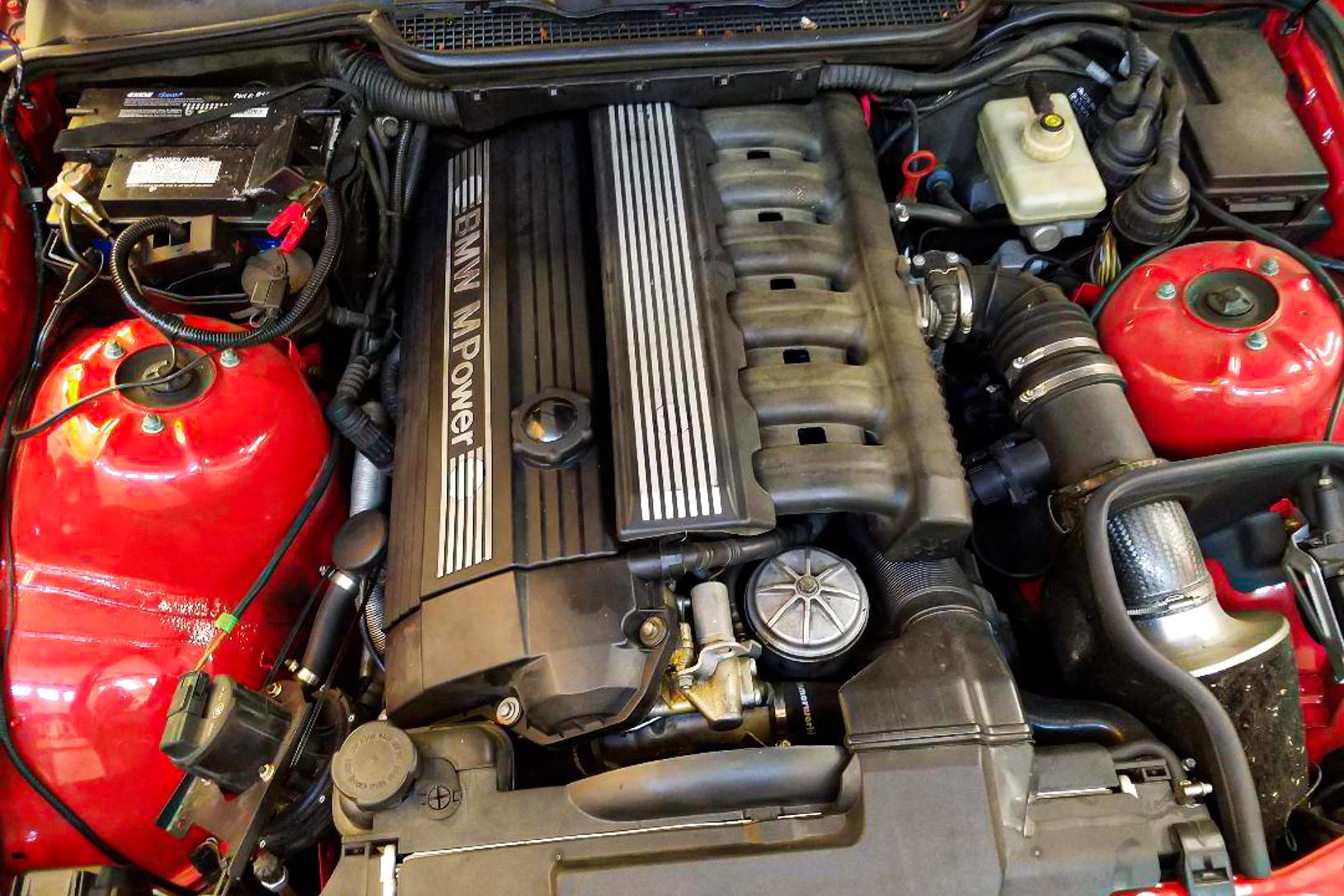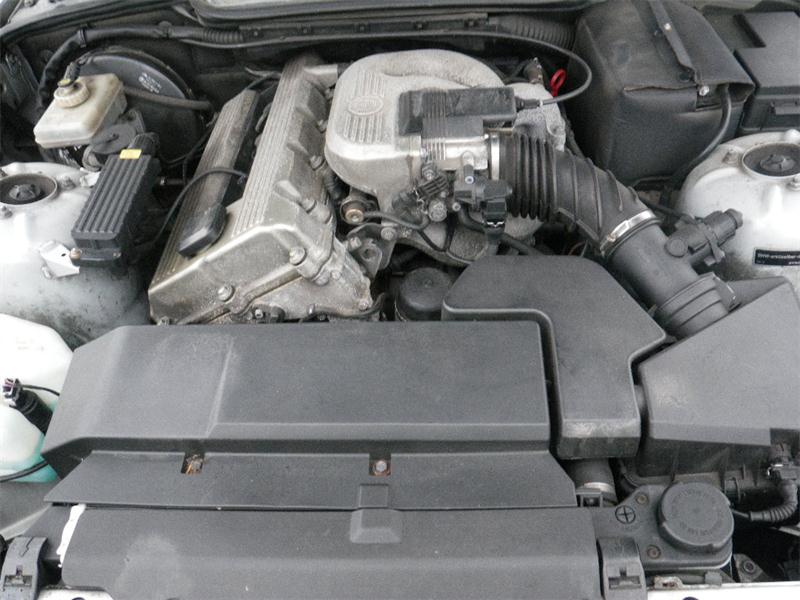BMW 318ti: Efficiency Specs and Qualities Explained
BMW 318ti: Efficiency Specs and Qualities Explained
Blog Article
Key Features to Try To Find When Getting an Engine for Automotive Applications
When considering the purchase of an engine for vehicle applications, several key attributes warrant careful analysis to make sure optimal efficiency and capability. From power and efficiency capabilities to fuel effectiveness, longevity, and adherence to emissions standards, each aspect plays an important duty in figuring out the engine's viability for details vehicle needs. Cost-effectiveness continues to be a pivotal aspect in the decision-making process, balancing quality with economic considerations. These functions collectively add to the total effectiveness and integrity of the engine, affecting the driving experience and long-term contentment of the customer.
Power and Efficiency
When selecting an automobile engine, customers focus on power and performance to make certain ideal driving experience and effectiveness. The power result of an engine, frequently determined in horse power (HP) or kilowatts (kW), determines the velocity, full throttle, and total capacities of a lorry. Higher power scores usually cause quicker velocity and much better performance, especially during surpassing or lugging hefty lots. Performance, on the various other hand, includes a broader range of qualities, including gas effectiveness, exhausts, integrity, and overall driving characteristics. A well-performing engine not only supplies power successfully but likewise runs smoothly across different speed varieties and driving problems.
Customers usually take into consideration the engine's torque output alongside its power score. Torque, measured in pound-feet (lb-ft) or Newton-meters (Nm), mirrors the engine's rotational pressure, influencing the vehicle's capacity to tow, climb slopes, and speed up from grinding halt. A balance in between power and torque is essential for achieving a receptive and functional driving experience. Furthermore, aspects such as engine turbocharging, hybrid, and variation innovations play significant duties in boosting both power and efficiency levels. Ultimately, choosing an engine that supplies a potent combination of power and efficiency makes certain a effective and enjoyable driving experience. bmw 318ti.
Fuel Effectiveness
Optimizing gas effectiveness is an extremely important consideration for customers when assessing auto engine choices. Modern engines with attributes like straight gas shot, turbocharging, and variable valve timing can considerably boost gas performance by enhancing burning processes and reducing power loss.

Longevity and Integrity
Achieving durable efficiency and reliable procedure is important for consumers evaluating the durability and reliability of auto engines. When taking into consideration an engine for auto applications, toughness refers to the engine's ability to withstand wear, anxiety, and severe operating problems over a prolonged period. Reliability, on the various other hand, suggests that the engine can consistently perform its desired feature without unexpected break downs or failings.
Customers need to search for engines built with high-quality materials and exact engineering to guarantee long life. Parts such as bearings, crankshafts, and pistons should be resilient to manage the engine's power output without premature wear. Furthermore, engines equipped with sophisticated air conditioning systems, efficient lubrication, and durable filtering devices often tend to exhibit higher levels of reliability.
Regular maintenance and adherence to manufacturer recommendations are additionally vital consider preserving an engine's resilience and reliability. By following upkeep routines, using recommended liquids, and attending to any type of concerns promptly, consumers can make the most of the life expectancy and performance of their automobile engines. Ultimately, focusing on resilience and integrity in engine option can cause a more enjoyable possession experience with fewer unforeseen interruptions.
Discharges Compliance
Making sure conformity with emissions laws is a vital facet of examining auto engines for ecologically mindful customers. With raising concerns regarding air top quality and ecological impact, stringent exhausts criteria have actually been placed in location globally to lower unsafe toxins released into the environment. When buying look at this now an engine for vehicle applications, it is vital to consider its exhausts conformity to decrease the carbon footprint and abide by legal requirements.
Modern engines are geared up with innovative discharge control innovations such as catalytic converters, exhaust gas recirculation (EGR) systems, and selective catalytic reduction (SCR) to minimize unsafe exhaust gases like nitrogen oxides (NOx), carbon monoxide gas (CO), and hydrocarbons (HC) These systems play a crucial role in guaranteeing that the engine meets the defined emissions criteria and runs within acceptable restrictions.

Cost-effectiveness
When taking into consideration auto engine acquisitions, reviewing cost-effectiveness is extremely important for customers looking for both performance and value. It includes the general expenses related to maintenance, gas usage, and prospective fixings over the engine's life expectancy.
One trick element of cost-effectiveness is gas performance. Engines that are developed to make best use of fuel economic climate can cause substantial financial savings with time, particularly for individuals who drive frequently or over cross countries. Furthermore, taking into consideration the schedule and cost of extra parts and maintenance can add to the total cost-effectiveness of an engine. Guaranteeing that upkeep and repairs are affordable and easily accessible can prevent unexpected financial problems down the line.

Final Thought
Finally, when purchasing an engine for automotive applications, it is essential to think about crucial attributes such as power and efficiency, gas performance, dependability and resilience, discharges conformity, and cost-effectiveness. These elements are important in guaranteeing that the engine satisfies the demands of the automobile and operates successfully in different driving conditions - bmw 318ti. Making an educated choice based upon these requirements will ultimately lead to a successful and efficient automotive engine acquisition
From power and efficiency capabilities to fuel efficiency, resilience, and adherence to exhausts standards, each aspect plays an essential function in determining the engine's suitability for particular automotive demands. Engines developed to run on different gas such as electrical power, crossbreed systems, or biofuels can offer enhanced fuel economic situation and lower emissions contrasted to typical gas or diesel engines. Consumers need to meticulously consider the fuel performance rankings and innovations integrated into automotive engines to make informed investing in decisions that straighten with their top priorities for price savings and sustainability.
When taking into consideration an engine for vehicle applications, resilience refers to the engine's capacity to Our site endure wear, tension, and rough operating go conditions over an extensive period.In conclusion, when acquiring an engine for vehicle applications, it is important to take into consideration vital features such as power and efficiency, fuel resilience, effectiveness and dependability, exhausts conformity, and cost-effectiveness.
Report this page